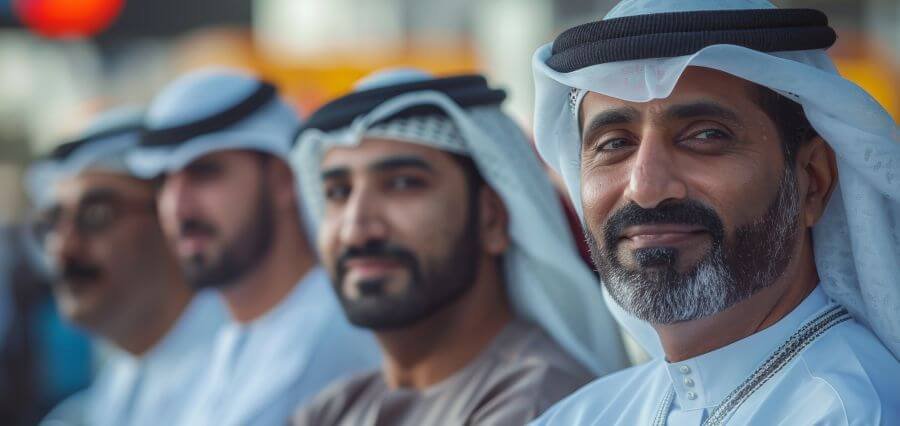#Dubai Next
As Dubai solidifies its position as a global hub for innovation, finance, and trade, its leaders are navigating the complex landscape of the modern hi-tech age. The city’s rapid development, driven by visionary leadership and strategic investments, has set the stage for Dubai to become a pioneer in technology and smart city initiatives. However, with these advancements come both significant challenges and opportunities. As Dubai strives to maintain its competitive edge in the global economy, its leaders must address the evolving demands of a tech-driven world while capitalizing on the new possibilities that technology presents.
One of the foremost challenges facing Dubai’s leaders in the hi-tech age is the need to continually adapt to rapid technological advancements. The pace of change in technology is accelerating, and keeping up with innovations in artificial intelligence (AI), blockchain, big data, and the Internet of Things (IoT) requires constant vigilance and adaptability. For a city like Dubai, which aims to be at the forefront of technological innovation, this means investing in cutting-edge infrastructure, fostering a culture of continuous learning, and ensuring that its workforce is equipped with the skills needed to thrive in a digital economy. Failure to keep pace with these advancements could result in Dubai losing its competitive advantage and falling behind other global cities that are also vying for leadership in the tech sector.
Another challenge is the integration of new technologies into the city’s existing infrastructure. While Dubai has made significant strides in developing smart city initiatives, such as the Dubai Smart City project and the Dubai Blockchain Strategy, the integration of these technologies on a city-wide scale is a complex and resource-intensive process. Ensuring that these technologies are seamlessly integrated into public services, transportation systems, and urban planning requires careful coordination and collaboration between government agencies, private sector partners, and technology providers. Moreover, as these technologies are implemented, there is a need to address potential security vulnerabilities and ensure that the city’s digital infrastructure is resilient against cyber threats. Cybersecurity will be a critical area of focus for Dubai’s leaders, as the city becomes increasingly reliant on digital systems and data-driven decision-making.
In addition to cybersecurity, data privacy is another major challenge that Dubai’s leaders must navigate in the hi-tech age. As the city collects and processes vast amounts of data through its smart city initiatives and digital services, there is a growing need to protect citizens’ privacy and ensure that data is used responsibly. Striking the right balance between leveraging data for innovation and safeguarding individual privacy rights will be essential for maintaining public trust in Dubai’s technological advancements. This challenge is further compounded by the need to comply with international data protection regulations, as Dubai seeks to attract global businesses and investors who are subject to stringent data privacy laws in their home countries.
Despite these challenges, the hi-tech age also presents numerous opportunities for Dubai’s leaders to enhance the city’s global standing and improve the quality of life for its residents. One of the most significant opportunities is the potential for economic diversification through the development of new technology-driven industries. Dubai’s leadership has already made substantial investments in emerging sectors such as fintech, renewable energy, and artificial intelligence, positioning the city as a hub for innovation in the Middle East. The establishment of innovation ecosystems, such as Dubai Internet City and Dubai Silicon Oasis, has attracted global technology companies and startups, creating a vibrant environment for entrepreneurship and technological development.
Moreover, the hi-tech age offers Dubai the opportunity to become a global leader in sustainable urban development. As cities around the world grapple with the challenges of climate change, Dubai’s leaders can leverage technology to create a more sustainable and resilient urban environment. Initiatives such as the Dubai Clean Energy Strategy 2050 and the development of the Mohammed bin Rashid Al Maktoum Solar Park demonstrate the city’s commitment to transitioning to renewable energy sources and reducing its carbon footprint. By integrating smart technologies into urban planning and infrastructure, Dubai can optimize energy use, reduce waste, and enhance the efficiency of public services, making the city a model for sustainable development in the region.
The advancement of artificial intelligence also presents an opportunity for Dubai to improve governance and public service delivery. AI has the potential to revolutionize how governments operate, enabling more efficient and effective decision-making, personalized public services, and predictive analytics that can anticipate and address societal challenges before they escalate. Dubai’s leadership has already embraced AI through initiatives like the Dubai AI Roadmap, which outlines a comprehensive strategy for integrating AI into various sectors, including healthcare, transportation, and education. By harnessing the power of AI, Dubai’s leaders can create a more responsive and citizen-centric government, enhancing the overall quality of life for its residents.
Another significant opportunity in the hi-tech age is the potential for Dubai to become a global hub for digital trade and e-commerce. The COVID-19 pandemic has accelerated the shift towards online commerce, and Dubai is well-positioned to capitalize on this trend. With its strategic location, world-class logistics infrastructure, and business-friendly environment, Dubai can attract e-commerce companies and digital entrepreneurs looking to establish a presence in the Middle East and beyond. The development of initiatives like Dubai CommerCity, the first dedicated e-commerce free zone in the region, underscores the city’s commitment to becoming a leader in digital trade. This shift towards e-commerce also presents opportunities for Dubai’s logistics and supply chain sectors, as companies look for efficient ways to move goods across borders in a digital-first world.
Furthermore as Dubai seizes these opportunities, its leaders must also address the social and economic implications of the hi-tech age. The rise of automation and AI has the potential to disrupt traditional industries and displace jobs, leading to concerns about inequality and social unrest. Dubai’s leadership must ensure that the benefits of technological advancements are broadly shared across society and that the workforce is equipped with the skills needed to thrive in a rapidly changing economy. This will require investments in education and training, as well as policies that support lifelong learning and upskilling for workers at all levels. Additionally, there is a need to create a social safety net that protects vulnerable populations from the negative impacts of technological disruption.
The modern hi-tech age presents both challenges and opportunities for Dubai’s leaders as they navigate the city’s future in a rapidly changing global landscape. By embracing innovation, investing in cutting-edge technologies, and addressing the social and economic implications of technological change, Dubai can continue to thrive as a global leader in the hi-tech era. However, success in this new age will require careful planning, strategic foresight, and a commitment to creating a sustainable and inclusive future for all of Dubai’s residents. As the city continues to evolve, its leadership will play a crucial role in shaping its path forward, ensuring that Dubai remains at the forefront of global innovation and progress.




